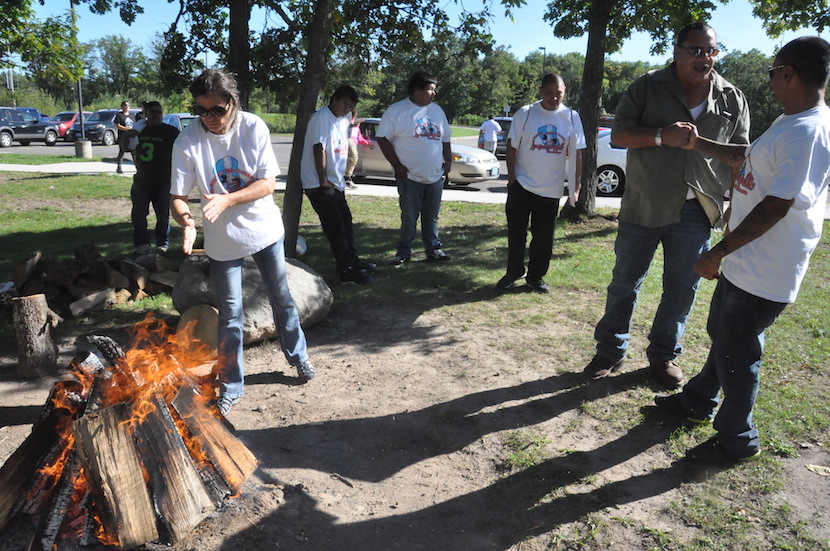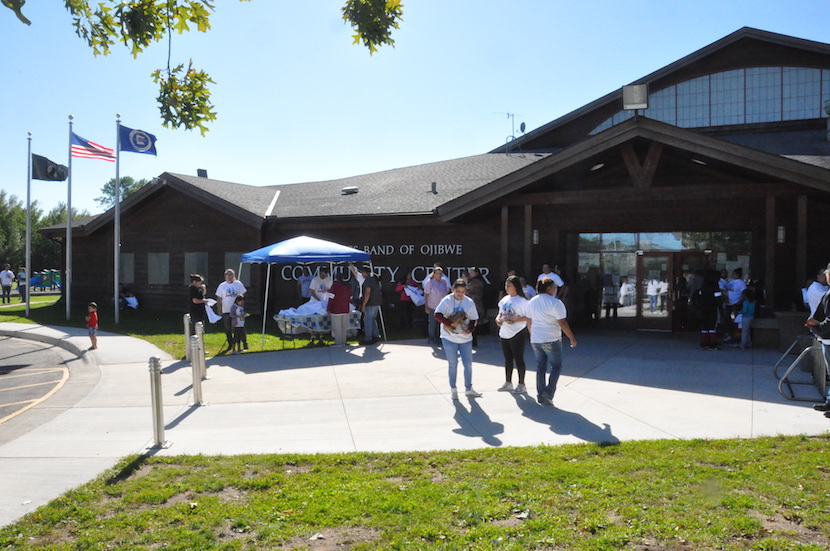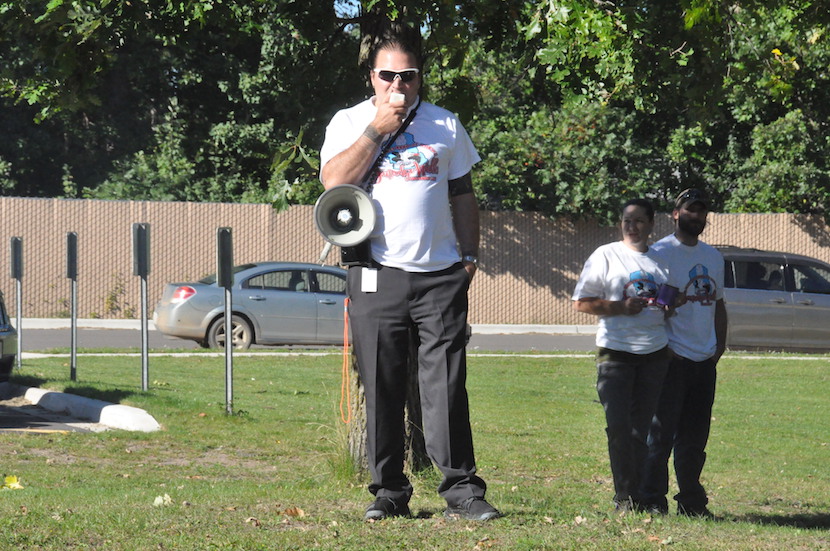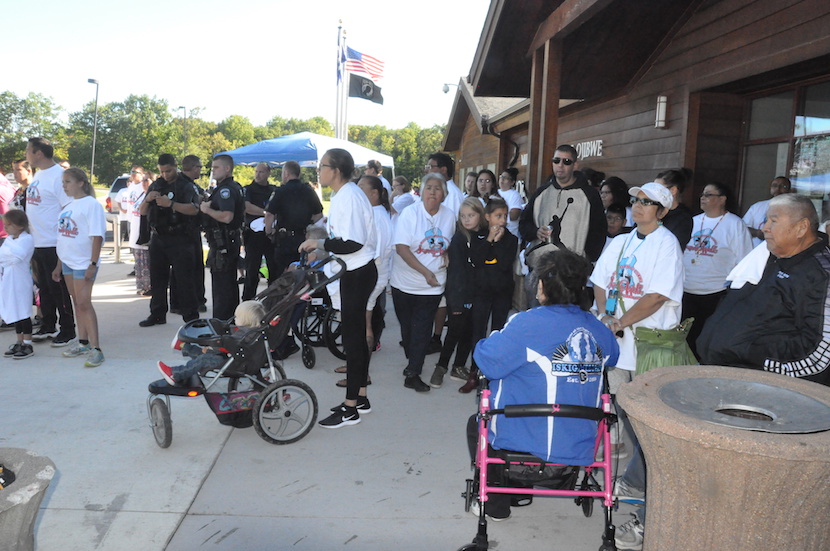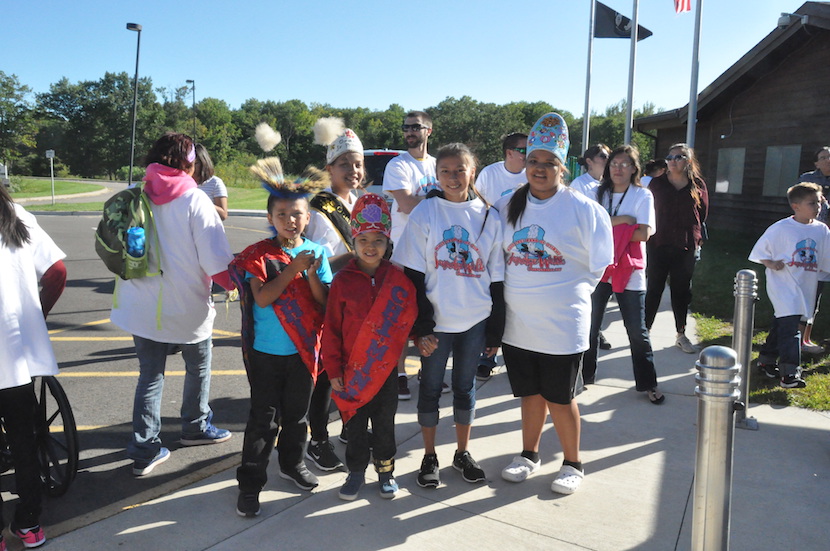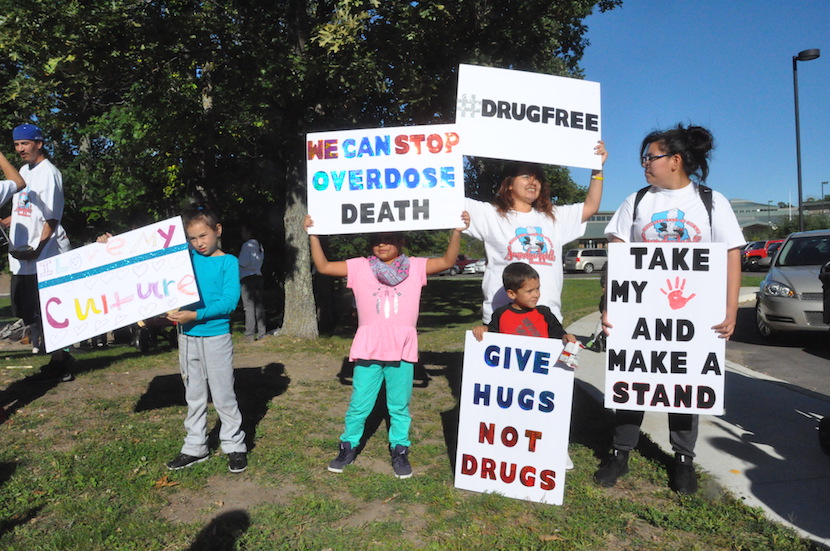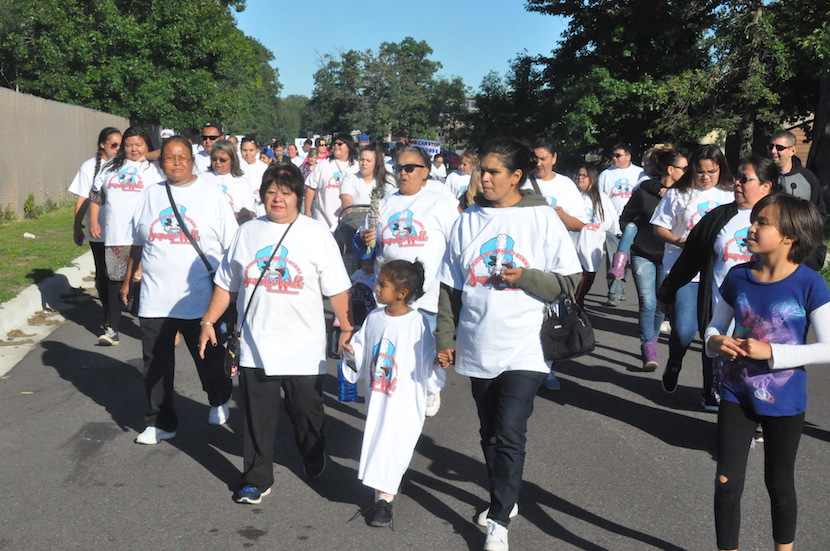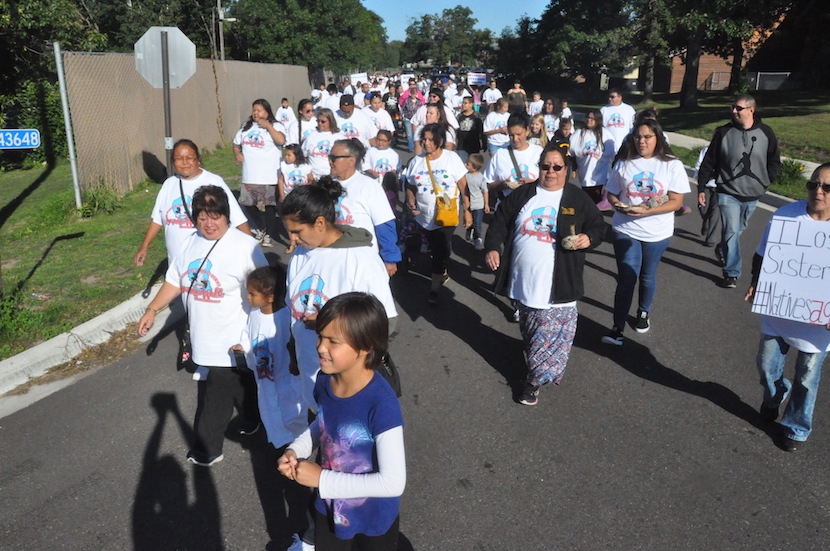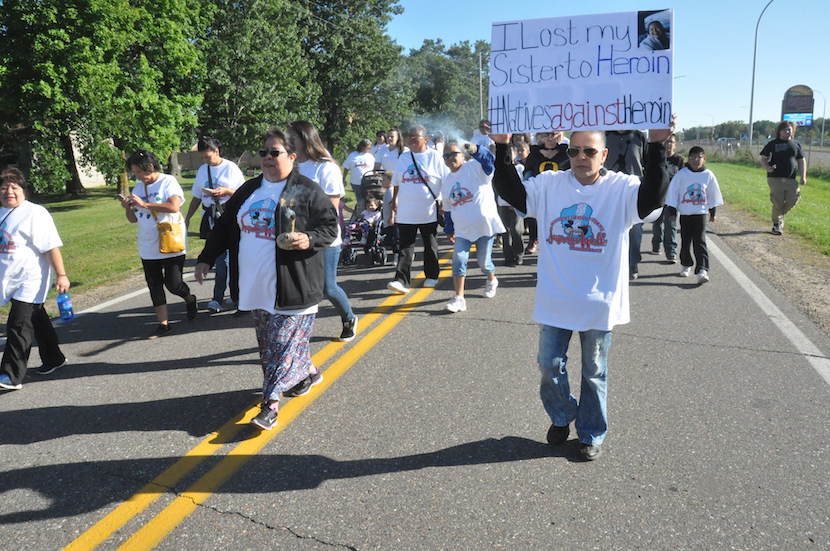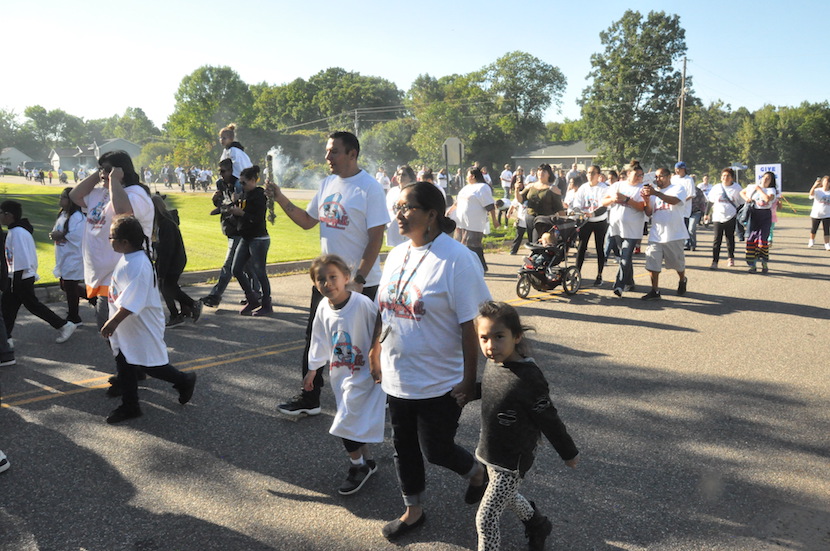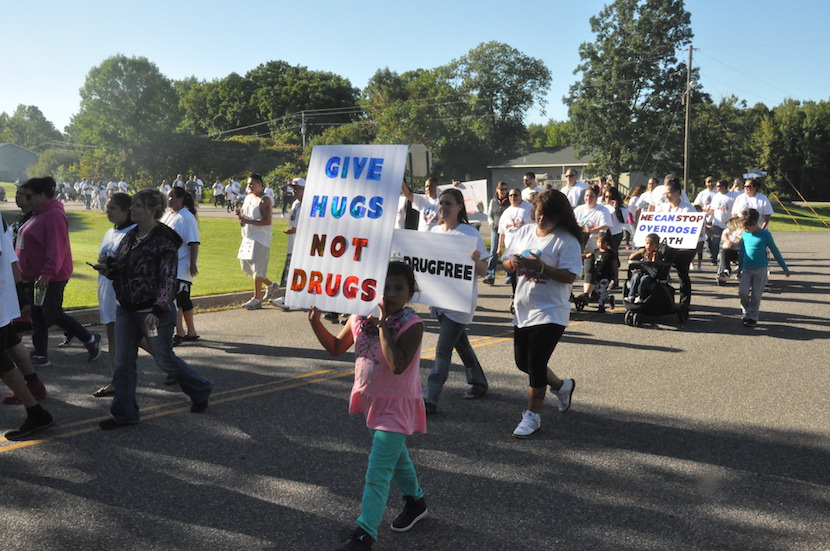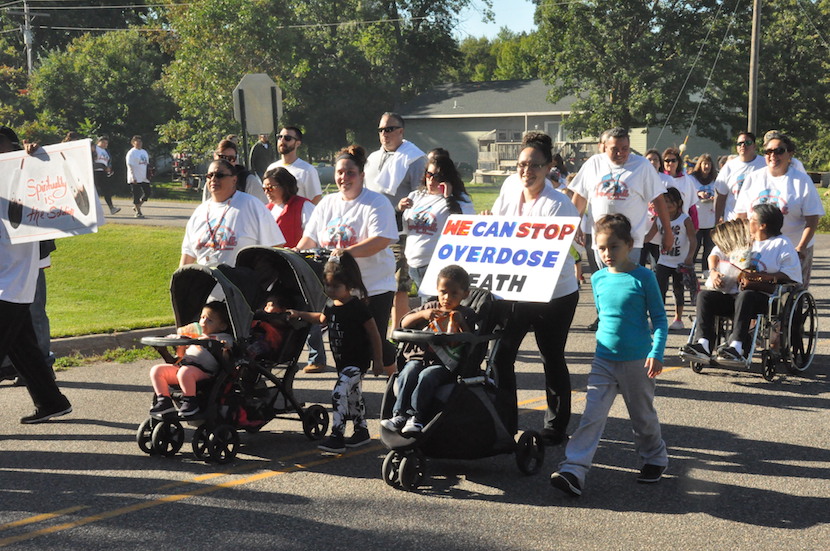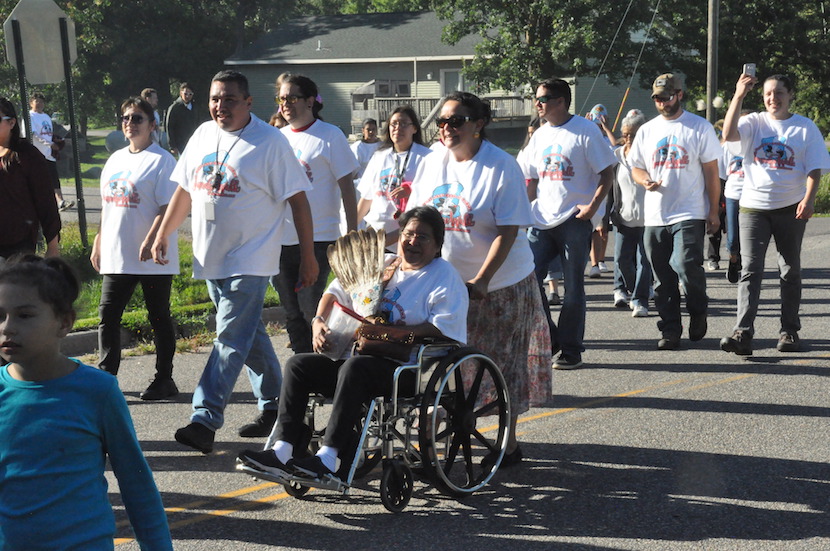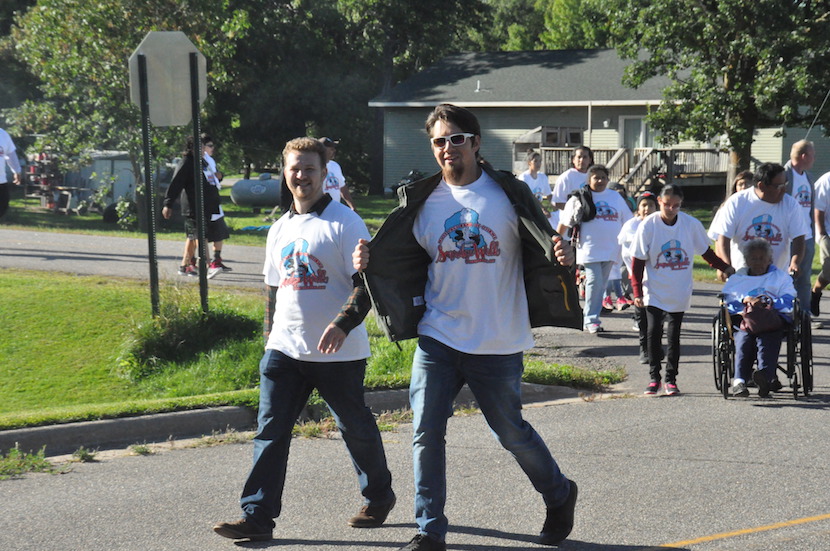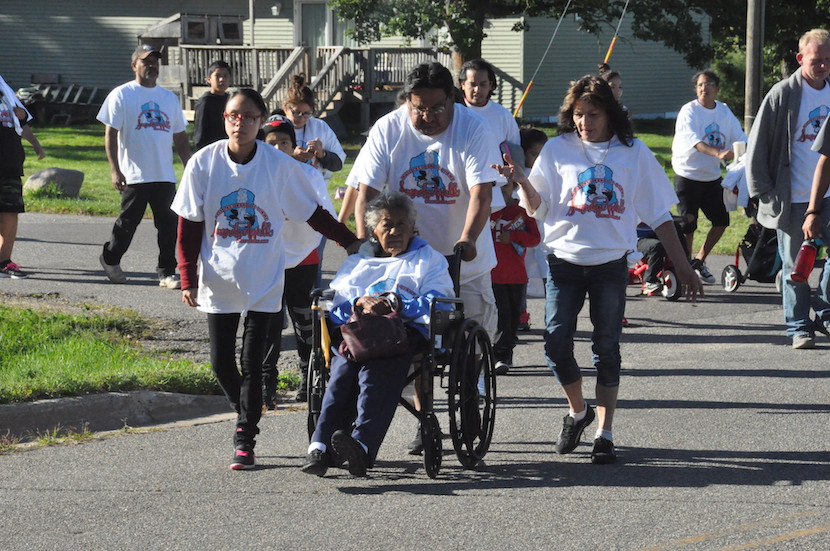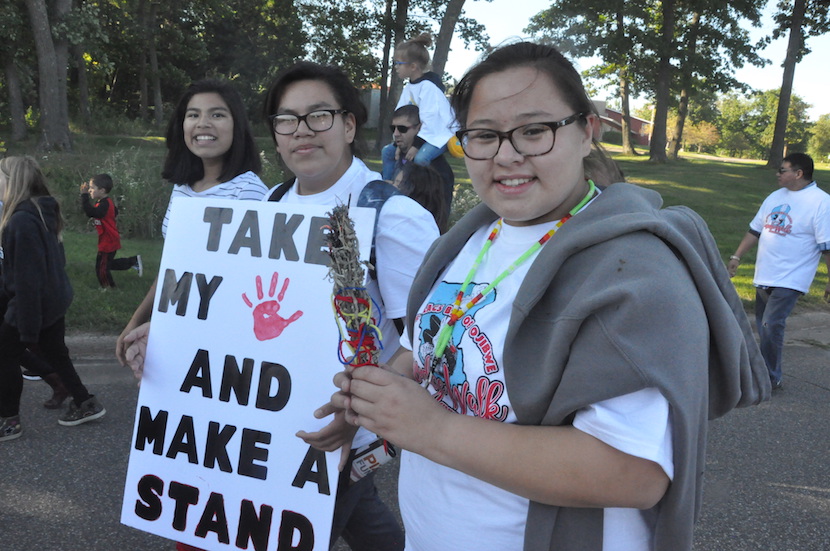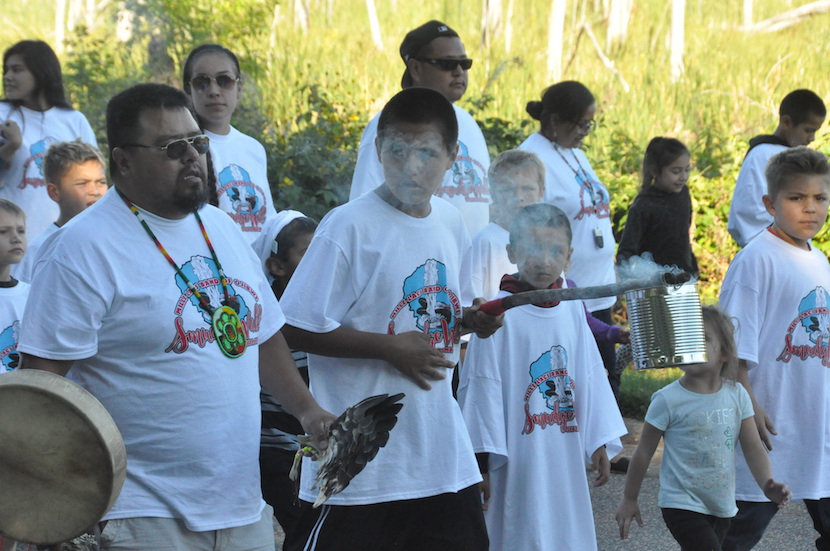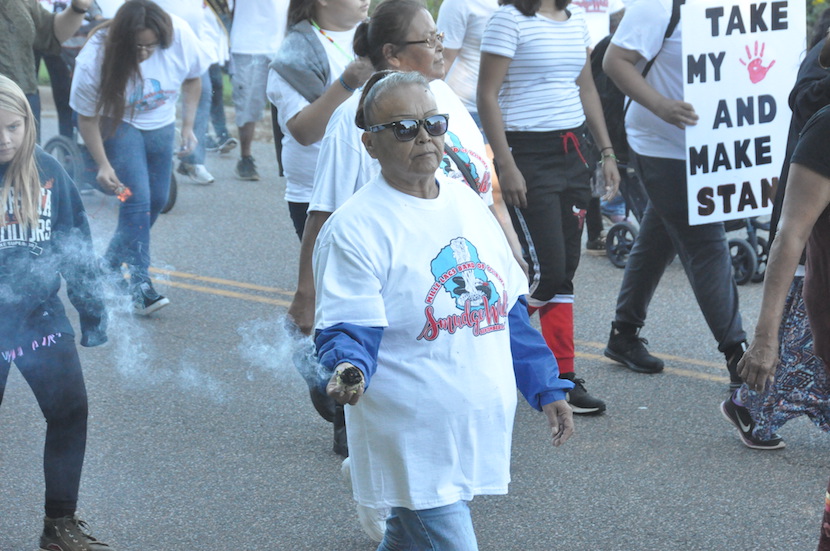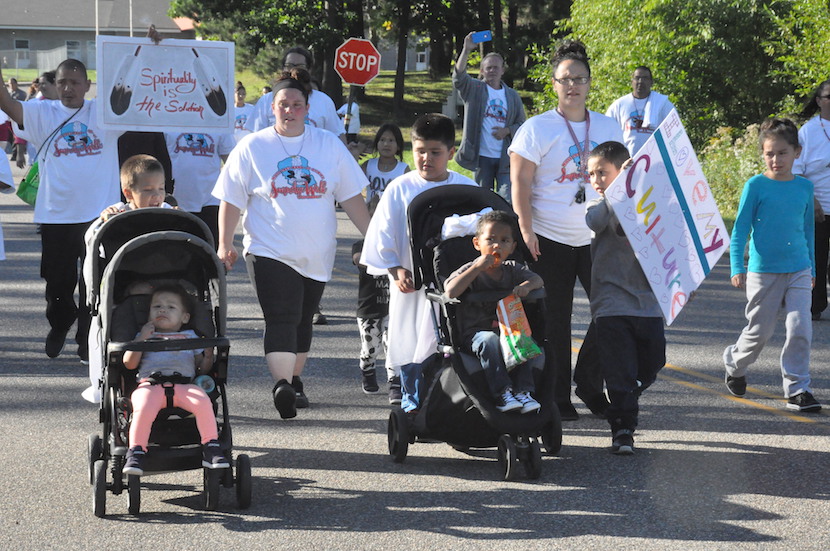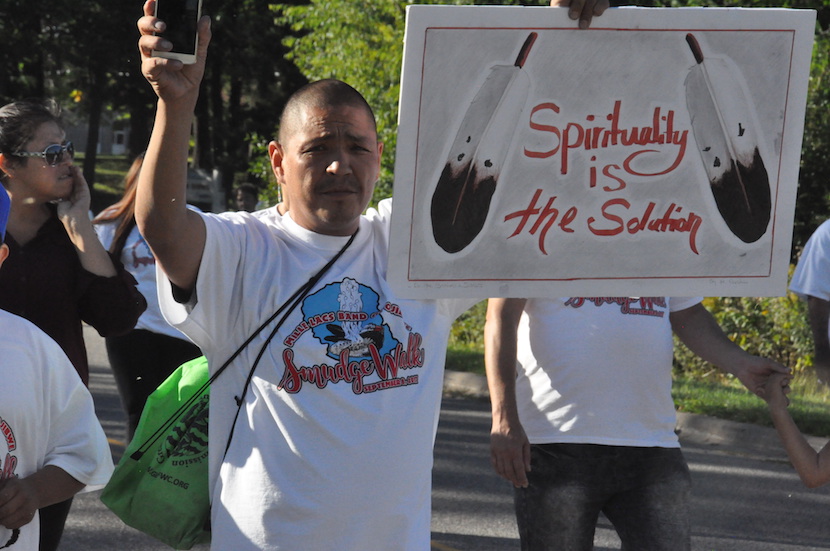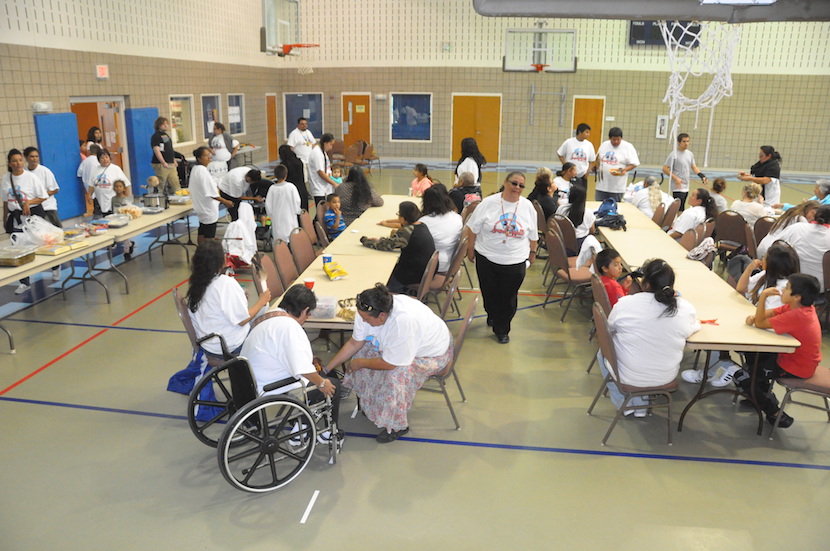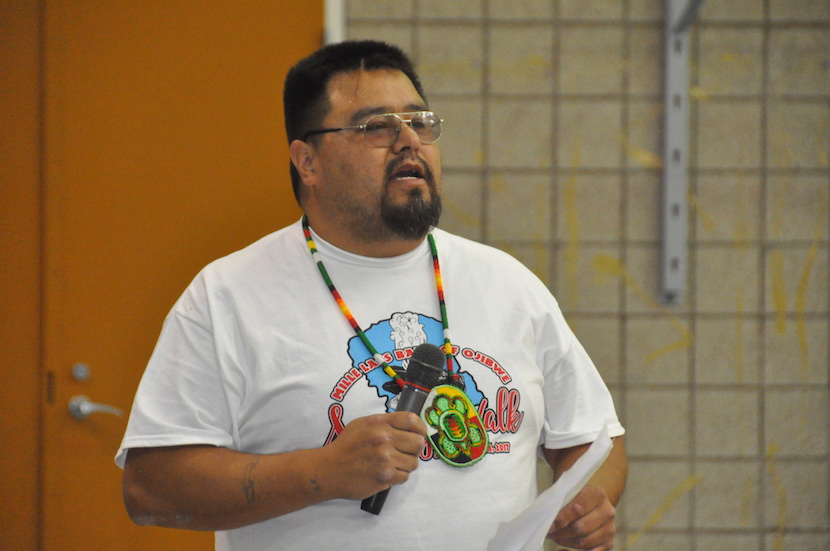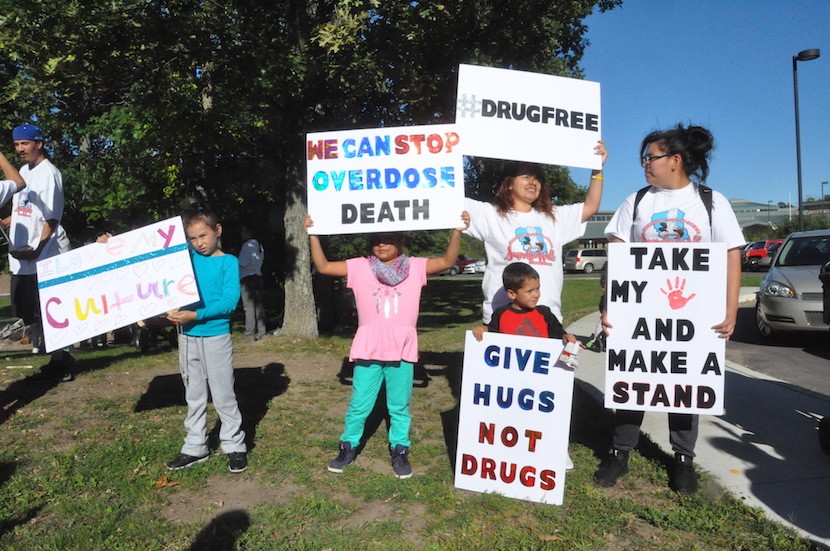
Bob Eagle and Bradley Harrington are first cousins with a lot in com- mon. Their fathers were brothers, and the sons are now neighbors. Both men teach their children traditional skills they share: ricing, fishing, singing and drumming.
Both have risen to respectable positions, Bob as the owner of a contracting business and Bradley as Commissioner of the De- partment of Natural Resources.
Their similarities are not all positive. Both men have been addicts, and both have been to jail.
But both found their way to sobriety through Anishinaabe culture — Bob as keeper of a drum once kept by his grandfather, Melvin Eagle, and Bradley as a dedicated student of the Ojibwe language and ceremonies.
Both Bob and Bradley have also seen what addiction has done to their community, so it’s no surprise that they’ve been talking about what they can do to help — especially after a rash of overdoses hit the community in August.
“Brad actually messaged me one night and said ‘Let’s do a smudge walk. Let’s smudge our community,’” Bob said. “That sort of clicked. There’s a physical side to addiction, but there’s a spiritual side, too. We use sage to ward off bad spirits.”
They put a notice on Facebook, and the interest was strong.
A week later they were leading a procession of 200 Band members, friends and family in a loop beginning at the community center, past the water tower, and around to the schools, the clinic, the ALU and the government center.
As they marched, Luther Sam played a hand drum and Bradley told his story through the megaphone: “I was an addict, I was a user, I was a criminal,” he said. “But I got healthy through our culture, our language and our ceremonies.”
Back where they started, volunteers dished up a feast, and Bob took the microphone and welcomed attendees to share their stories.
It didn’t come easy for him. Bob introduced himself in Ojibwe and said, “I’m not a very good person to be up here speaking, but you gotta start somewhere, just like we’re doing here today. We’re starting here.”
He led those in attendance in a moment of silence to remember a young Band member who is in a coma following an overdose.
Bob introduced Dorothy Sam, who gave the invocation, and several Band members spoke of the negative impact heroin and other drugs have had on their lives and families.
One of those was his 23-year-old daughter Starla, who was addicted to heroin before quitting a year ago.
Before Starla got clean, Bob thought of her as he put out his asemaa every day. “I said I would do anything to help her,” Bob recalled.
Last September, Bob fell ill with a life-threatening infection, and Starla came to the hospital to see him. While she was there, people noticed she wasn’t looking well. It turned out she had a blood infection that was affecting her heart. She spent 78 days in the hospital.
“I think my getting sick, I had to go through that in order to help her,” said Bob. “My prayers were answered. The spirits work in mysterious ways.” (For more on Starla, see below.)
Bob speaks openly about his own addiction and recovery — how a DWI five years ago earned him a six-month sen- tence, but also gave him the wake-up call he needed to finally quit drinking.
“When I saw those flashing lights in my mirror, I decided to tell the truth to that cop and never drink again,” he said.
He’s lived up to that promise, with help from his culture. When he was in jail, he wrote a letter to his grandfather, and when he was released, he went to see him. “I read your letter,” said Melvin. “I was waiting for you to come and see me.”
Melvin told Bob that he would someday take the chief’s position on that drum. “You gotta promise me that you’re not ever gonna drink again,” he said.
Bob promised, and after Melvin passed away, Perry Benjamin came to Bob and said the drum society wanted him to be head drum chief. “I accepted immediately,” said Bob. “Being in that position as a drum keeper for the past few years I’ve learned that it’s my duty to help my people. I believe wholeheartedly that our spirituality, our culture, our heritage is the solution to any issue.”
Bob doesn’t miss the drinking. “I’ve filled my life with ceremony, my kids, my work... We go to Big Drum, sweat lodges, mide, ricing, sapping. There’s no time to even think about drinking.”
Bob has also made himself available to anyone who needs help with addiction. He listens, gives advice and tries to get them the help they need.
He also shares his story. “It feels great to be out in the open about it,” he said. “If I can help one person with the struggles I’ve faced, then by all means I’ll tell them about it. I was an alcoholic for many years. I’ve hurt family members, friends, significant others. That I’m not proud of, but I have made amends, and I did that in a good way, from my heart. I’ll be five years clean and sober in December, and I’m proud of how far I’ve come. I’m a better role model for my children, my family, my community as a whole. I don’t want to experience this alone; I want the community to come with me and experience this gratefulness for being sober.”
In order to do that, Bob is ready to bring community involve- ment to the next level, and the smudge walk was the first step. Like many Band members, Bob has seen the devastating impact of opioid addiction. He has siblings who have been addicted, as well as his daughter.
For Bob, the users and dealers alike are in need of connection and compassion. “For a long time I’ve combatted this with anger. I was pushing people away that I felt would do harm to my well being. Supporting my daughter in her addiction, I learned a lot,” he said. “I learned that compassion and love and caring is the ultimate ticket to helping people reconnect with their family.
“We’ve talked about making appearances at drug dealers’ houses, singing prayer songs outside their houses, not to shame them, but to tell them we know what they’re doing, we know who they are. This is a spiritual movement we’re going for here. We want to help people the best way we know how as Anishi- naabe people, and that’s through prayer.”
They’ve already held a second smudge walk, and they’ve of- fered to help out in other communities that want to fight drugs and drug-dealing. Their Facebook page, “Millelacs Band Community issues and information,” is a source of inspiration and positive conversation.
For Bob, and for his cousin Bradley, it all comes back to tradition and spirituality.
“A lot of times our folks get disconnected from their spirit,” Bob said. “We want to set up a united front of compassion, love and caring, to bring people back to our culture and spirit. Working hand-in-hand is the way to go forward. We have to try to stand united as a community to face this problem.
“I’ve grown up in this community, and there’s been a sense where everybody was afraid to tell on anybody. It’s time to take a stand on stuff like that. Violence in our community, bullying, violence against our women, our children — we can’t be afraid to stand up and say no — to be the one to make it stop.”
Starla’s Story
by Starla Eagle — Guest Writer
One year ago today I was hospitalized and wasn’t expected to make it. I was fighting to stay alive. I extremely damaged my body from shooting heroin and meth into my veins. That was the day I got sober, and since then I went through treatment/halfway house and open heart surgery all because of my drug use.
I have endured many obstacles and struggles that made me feel like giving up, but that would have been the easy way out. I am so blessed to have a second chance at life. I cherish every moment, the good and the bad, because I took life for granted for years, and life is too short to just waste it away on a high.
I wouldn’t have gotten this far in my journey without my family and my huge support system I’ve made.
Now I’m a full-time college student at Fond Du Lac Tribal College. My major is chemical dependency and minor is American Indian studies. I live in Duluth, and my next goal is to obtain my driver’s license and get a vehicle. I’ve made it out of the drug-using lifestyle, and so can anybody else. It’s not easy by any means, but I can honestly say my worst day sober is better than my best day using!
Starla Eagle posted this story on her Facebook page on Sept. 13 and gave us permission to reprint it. She also shared her story at the District I Community Center after the smudge walk in District I on Sept. 8.
